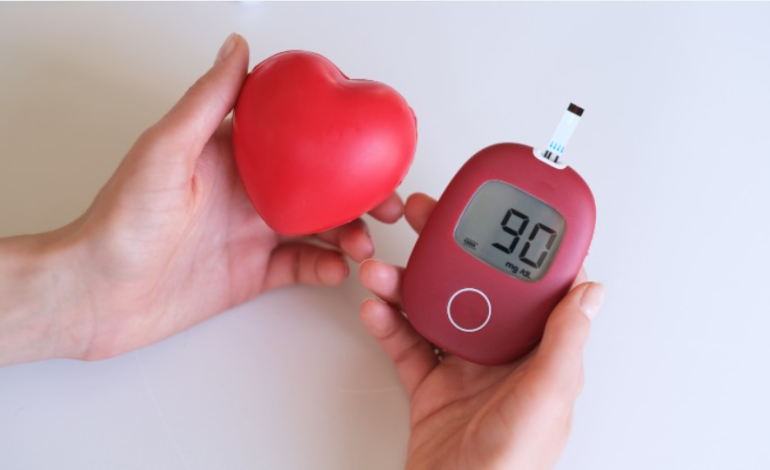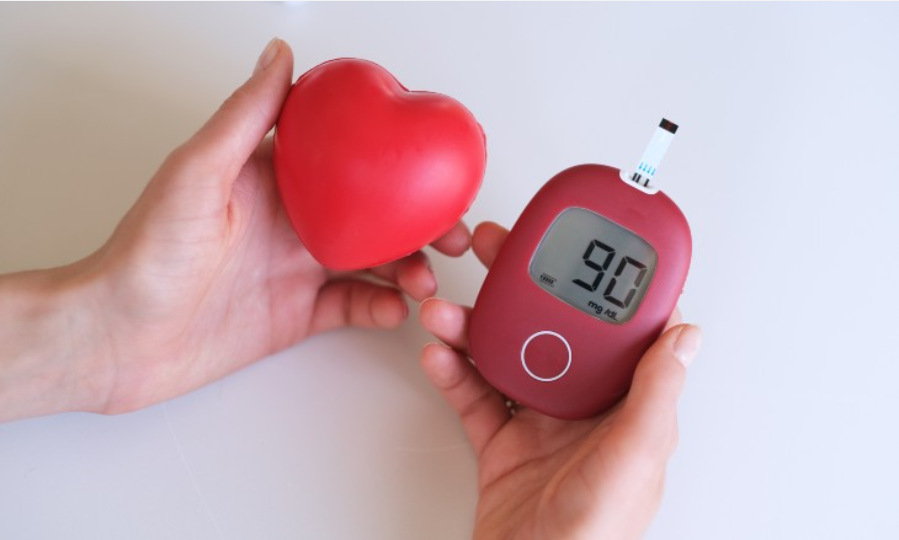
Can Diabetes Impact Your Heart Health?

Diabetes is a chronic condition where your body struggles to manage blood sugar levels. This can happen when your pancreas stops producing insulin or when your body can’t properly use the insulin it produces to regulate blood sugar.
There are different types of diabetes, but the most common is type 2 diabetes. This happens when consistently high blood sugar prevents your cells from responding to insulin properly. According to the CDC, about 90-95% of diabetes cases in the U.S. are type 2.
If not managed well, diabetes can affect almost every organ in your body, including your heart, kidneys, blood vessels, and nervous system. Here’s how diabetes can impact your heart health.
How Does Diabetes Affect Your Heart? When you have diabetes, glucose stays in your bloodstream for longer periods instead of being used as energy inside the cells. This excess glucose damages tissues, including those in your heart and blood vessels.
Over time, diabetes can stiffen the tissues in your heart and blood vessels, leading to heart problems like heart failure and fluid retention. It also increases your risk of coronary artery disease, a condition where fatty deposits build up in the arteries that supply blood to your heart. This can raise the likelihood of having a heart attack.
Having both diabetes and coronary artery disease makes it harder to recover from a heart attack. People with diabetes are more likely to have recurring heart attacks or even sudden cardiac death. This is because diabetes can slow the healing of heart tissue after a heart attack, leading to scarring.
Diabetes also causes nerve damage that can affect the nerves controlling the heart, making it harder to feel early signs of a heart attack, such as chest pain.
Cardiovascular Risks of Diabetes People with type 2 diabetes are about four times more likely to die from cardiovascular disease. According to the CDC, diabetes also increases the likelihood of other heart disease risk factors, including:
- High blood pressure
- High LDL (“bad”) cholesterol
- High triglycerides
These conditions often don’t show symptoms until complications arise, which is why it’s so important to have regular checkups with your doctor. They can monitor your blood pressure, cholesterol, and triglyceride levels and advise you on how to keep these risks in check. Some heart health tests can even be done from home.
Testing for Heart Disease If you have diabetes, your doctor might recommend tests to check for heart disease, such as:
- Electrocardiogram (ECG or EKG): Measures the electrical activity of your heart.
- Echocardiogram: Uses sound waves to create images of your heart, showing how well it pumps blood and the thickness of your heart muscles.
- Exercise stress test: Monitors your heart’s function while you exercise on a treadmill.
How to Lower the Risk of a Heart Attack with Diabetes The good news is, you can take steps to manage both diabetes and heart disease early on. Leading a healthy lifestyle is key to managing both conditions, and the lifestyle changes for both diabetes and heart disease prevention often overlap.
If you have diabetes and cardiovascular disease, try to avoid risk factors that could worsen your condition, like:
- Smoking
- Not being active enough
- Drinking too much alcohol
- Being overweight or obese
- Eating a diet high in unhealthy fats, salt, and processed sugars
The National Institute of Diabetes and Digestive and Kidney Diseases recommends managing your diabetes through the “ABCs”:
- A: A1C test (measures your average blood sugar over time)
- B: Blood pressure
- C: Cholesterol
- S: Stop smoking
Eating a balanced diet with plenty of fruits, vegetables, lean proteins, and healthy fats is essential. Regular exercise is also important to prevent complications. While diabetes is a chronic condition that can’t be cured, it can be effectively managed with the right steps and medical treatments, such as oral medications and insulin.





